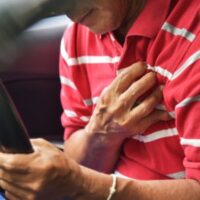Car Accidents Caused by Medical Emergencies in Pennsylvania: Who Is Liable?

Car accidents can occur for countless reasons, but when the cause is a sudden and unforeseen medical emergency, questions of liability become far more complicated. In Pennsylvania, victims of these accidents may face challenges in pursuing compensation if the at-fault driver claims they were incapacitated by a medical event beyond their control. Understanding how Pennsylvania law approaches these cases is essential for anyone affected.
If you’ve been injured in such an accident, speaking with an experienced Philadelphia auto accident lawyer is the best way to protect your rights and ensure you pursue all available legal remedies.
The Sudden Medical Emergency Defense
Pennsylvania law recognizes what is known as the “sudden medical emergency defense.” This legal doctrine allows a driver to avoid liability if they can prove that an unforeseen medical event, such as a heart attack, stroke, seizure, or fainting spell, directly caused the accident and left them with no opportunity to prevent it.
To successfully use this defense, the driver must demonstrate that the medical event was truly unforeseeable and beyond their control. If established, the driver may not be considered negligent, and liability could shift away from them. This defense makes proving fault in these cases particularly challenging for accident victims.
When the Defense Does Not Apply
Importantly, not every medical condition qualifies as a valid defense. If a driver had a known medical condition that made driving unsafe, or if they ignored medical advice, they may still be held liable for an accident. For example, if a driver with uncontrolled epilepsy causes a crash during a seizure, liability may still attach because the risk of such an event was foreseeable.
Similarly, drivers who fail to take prescribed medication, ignore warning signs of illness, or drive despite recent symptoms may not be able to escape responsibility under the sudden medical emergency defense.
Establishing Liability in Medical Emergency Accidents
Determining liability in these cases requires a detailed investigation into the driver’s medical history and circumstances leading up to the crash. Courts and insurance companies will often review medical records, prescriptions, and testimony from healthcare professionals to determine whether the driver should reasonably have anticipated the medical episode.
In some cases, liability may extend to third parties. For instance, if a healthcare provider negligently cleared a patient to drive despite knowing of serious medical risks, the provider could potentially face liability for the accident. Likewise, if the driver was operating a company vehicle during work duties, their employer may be held responsible under Pennsylvania’s vicarious liability laws.
Insurance Complications in Medical Emergency Claims
Insurance claims arising from medical emergency accidents can be complex. Pennsylvania’s no-fault system requires your own insurance to initially cover medical expenses and lost wages, regardless of fault. However, to recover additional damages, such as pain and suffering or compensation for severe injuries, liability must be established.
When an at-fault driver asserts the sudden medical emergency defense, insurers may deny claims outright, leaving victims to pursue litigation. Without strong legal representation, victims may face significant challenges in overcoming these denials and securing fair compensation.
The Role of Comparative Negligence
Pennsylvania follows a modified comparative negligence rule, meaning that victims can still recover compensation if they are less than 51% at fault for an accident. In medical emergency cases, this principle can apply if the driver was partially negligent in failing to address their medical condition but also suffered a sudden, unforeseeable episode. Courts may apportion liability accordingly, reducing the victim’s compensation by their percentage of fault, if any.
Protecting Your Rights After an Accident
If you’ve been injured in an accident potentially caused by another driver’s medical emergency, taking immediate steps is crucial. Always seek medical attention right away, even if your injuries seem minor, as timely documentation strengthens your claim. Gather as much evidence as possible, including photographs of the accident scene, witness statements, and any details regarding the other driver’s condition.
Do not rely solely on insurance adjusters to protect your interests. Insurance companies may quickly accept a driver’s sudden medical emergency claim without fully investigating the facts. Engaging an attorney ensures that the other driver’s medical defense is carefully scrutinized and challenged where appropriate.
Importance of Legal Representation
Medical emergency accident claims often involve complex intersections of personal injury law, medical evidence, and insurance regulations. A skilled Philadelphia auto accident lawyer can investigate thoroughly, consulting medical experts, reviewing driver histories, and uncovering evidence that challenges sudden emergency defenses.
Your attorney will handle communications with insurers, negotiate settlements, and, if necessary, pursue litigation to hold negligent drivers accountable. They will also explore every potential source of recovery, including underinsured motorist coverage, employer liability, or claims against negligent healthcare providers.
Contact The Villari Firm
If you or a loved one has been injured in an accident caused by a driver’s medical emergency in Pennsylvania, you don’t have to face these challenges alone. At The Villari Firm, our experienced Philadelphia auto accident lawyers are committed to protecting your rights, challenging sudden emergency defenses, and ensuring you pursue the full compensation you deserve.
Contact us today for a consultation, and let us help you navigate the complexities of your case with skill and dedication.
Sources:
Pennsylvania Department of Transportation – Accident Procedures
Pennsylvania Insurance Department – Auto Insurance Coverage
Case law reference: Shiner v. Ralston, 64 A.3d 1 (Pa. Super. Ct. 2013) (addressing sudden medical emergency defense)
